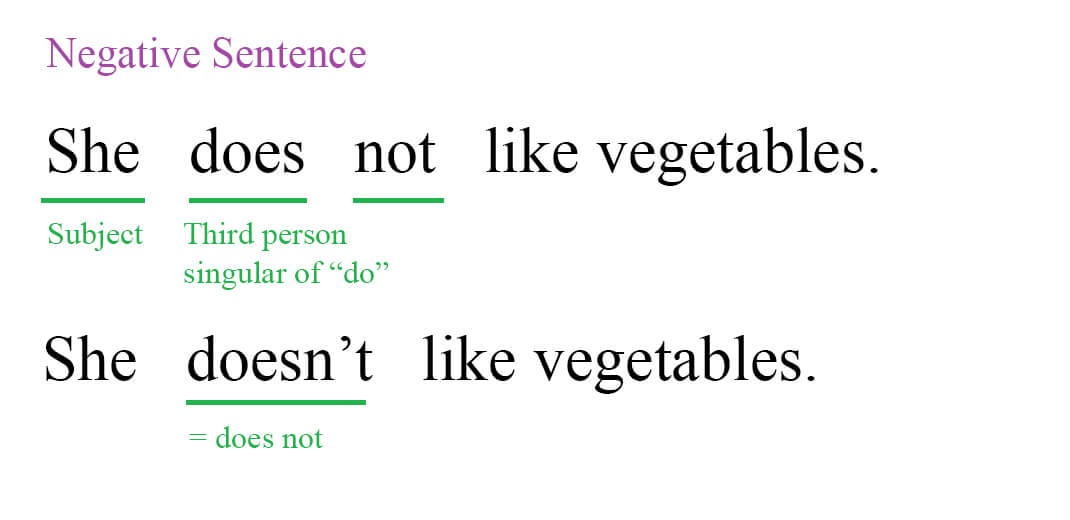Negative Sentence in Simple Present Tense
- To form a negative sentence in English, use 'do not' or 'does not' before the verb.
- For 'I', 'you', 'we', 'they', and many things or people, use "do not" or "don't".
- For 'he', 'she', 'it', or one thing or person, use "does not" or "doesn't".
- The verb that follows 'do not' or 'does not' is always in its base form.
To make a negative sentence in English, we usually use 'do not' or 'does not' before the verb. For example, if the positive sentence is "I like apples”, the negative sentence would be “I do not like apples”.
Do not / Don't
If the subject is "I", "you", "we", "they", or many things or people, put "do not" or "don't" after the subject.
"Don't" is the short form (contraction) of "Do not".
Examples:
-
You don't like apples.
Subject ("You") - don't - verb ("like") - object ("apples")
-
They do not like apples.
Subject ("They") - do not - verb ("like") - object ("apples")
Does not / Doesn't
For third-person singular (he, she, it, one thing or person), we put "does not" or "doesn't" after the subject. The verb must be in base form.

Examples:
-
She doesn't like vegetables.
Subject ("She") - doesn't - verb in base form ("like") - object ("vegetables")
-
This is WRONG: She doesn't likes vegetables.
-
It does not like apples.
Subject ("It") - does not - verb in base form ("like") - object ("apples")
Remember, the verb following 'do not' or 'does not' is always in the base form. As seen in the examples above, even though the subject 'he' usually changes the verb (like to likes), in negatives we keep the base form of the verb (like).
Practice this topic with the AI English Tutor
AI English Tutor will teach you the grammar and practice it with you in a conversation format. Plus, 100+ practice questions on this topic to cement your understanding.
Try ALULA for free on your phone or tablet








Do you have any questions about this lesson? Ask in the comment section, below.